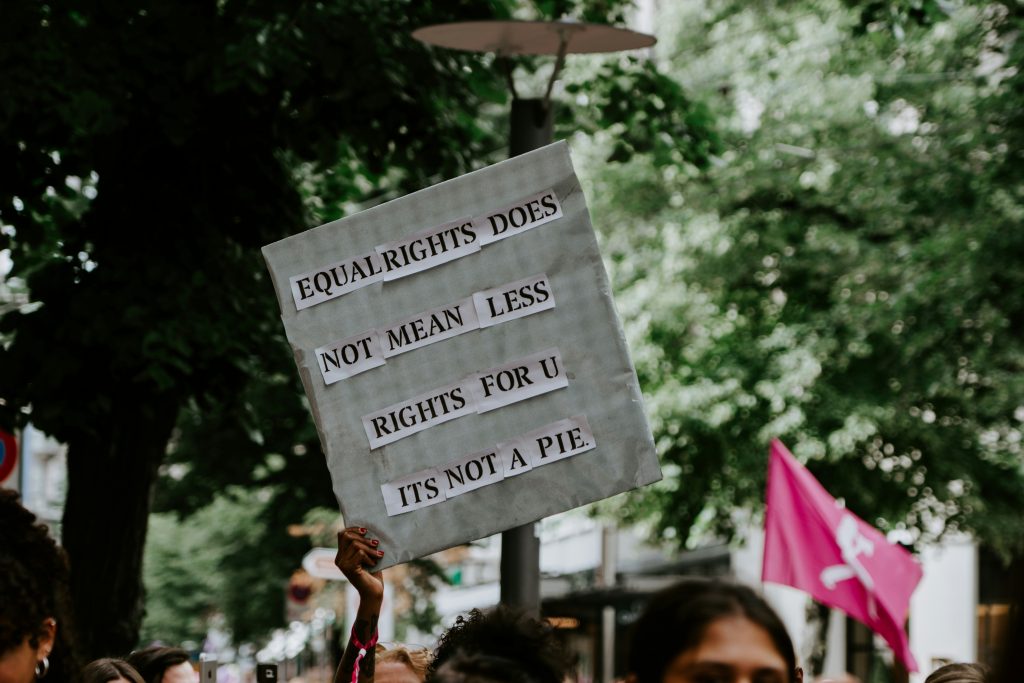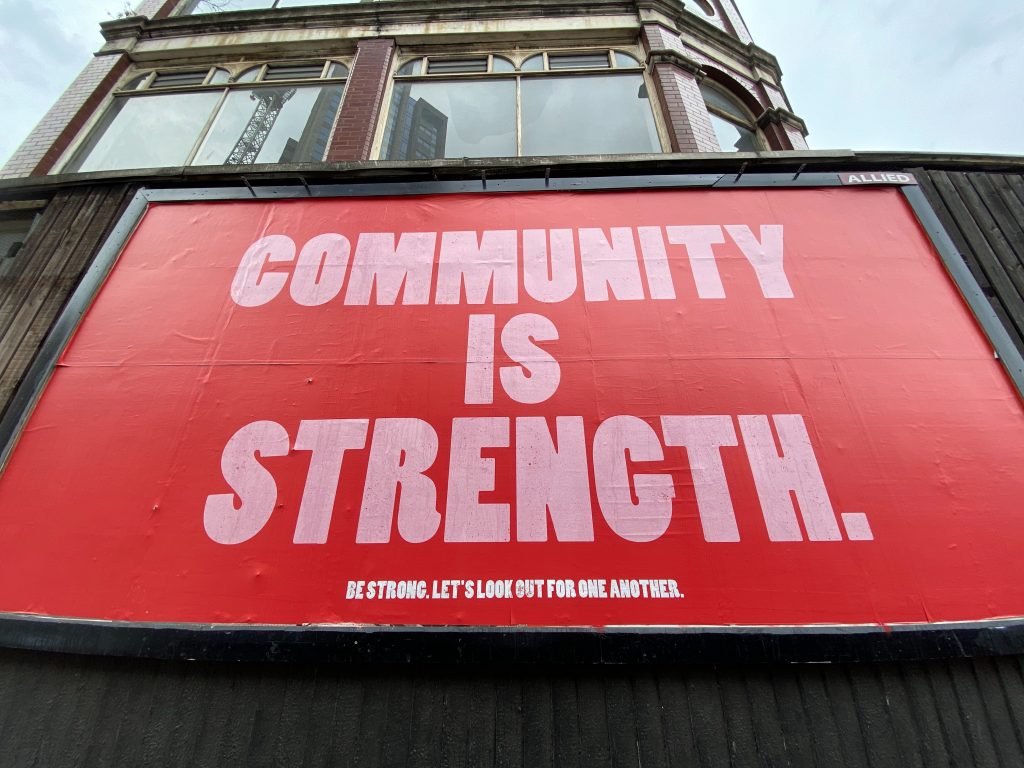
The nation’s mental health has been declining for a number of years, and took a sharp downturn during the early phase of the pandemic, from which it has yet to show signs of recovering. During that time, public awareness and understanding about mental health and mental illness have been growing too. We’re more open and literate about our mental health than ever, and stigma has been reducing (but not entirely disappeared).
Public and political debate about mental health has tended, however, to focus on individualised experiences or on concerns about the provision of mental health services. Important as these are, much less attention has been given to the social and economic determinants of our mental health, let alone the stark and deeply entrenched inequalities and injustices that lie behind them. This matters because public discourse informs decisions about how scarce resources are spent, about political priorities, and about the ways we relate to one another in our communities, schools, and workplaces.
This study by Vanessa Pinfold and colleagues (2023) sought to address this gap by speaking with people who have experience of structural mental health inequality in their lives, and building a set of narratives and insights based on how they reflect on the topic. By coproducing knowledge using photography and peer research, it seeks to redress the power imbalances in both research and society as a whole and put forward solutions drawn from lived experience of the unequal and unfair determinants of mental health.

“…despite extensive evidence and UK policy initiatives, we have been living long-term with a sustained public health crisis, resulting in disparities in mortality and health, including mental health.” Pinfold et al. (2023).
Methods
The authors describe the study as,
A qualitative study using peer methods, a participatory approach where people affected by the issues being researched direct and conduct the study.
They note that: “Peer research benefits from insider knowledge and attempts to ensure an equilibrium of power between the interviewee and the interviewer”. The aim is to eradicate the power imbalances that are inherent in traditional qualitative research methods in order to elicit more authentic evidence.
The study used a range of methods to do this, including photo-taking, though not using the full ‘photovoice’ methodology (using photography as a means of building knowledge from lived experience) that other recent studies with marginalised and disadvantaged groups have employed.
In total, the study team interviewed 30 people from two London boroughs (Harrow and Lambeth), all of whom had experience of mental ill health (one as a carer), and some of whom had used mental health services. The results of the interviews were analysed to draw out key themes and insights.
Results
The study identified three key themes from the interviews.
Theme 1: Inequalities are unjust, multilayered and intertwined with mental health
The first theme was a clear message that social and economic inequalities are unjust and contribute to poor mental health. Key drivers of inequality were noted, including financial, housing, immigration, and employment issues, racism, and gender-based violence. Interviewees described inequalities as a form of social injustice, which is harmful to everyone:
Inequality is illness, inequality is social unrest, inequality is spread out in many, many, many different ways and the rich getting richer, the poor getting poorer and that’s not good for anyone.
Interviewees described ways in which inequalities caused suffering in their and other people’s lives, putting their mental health at risk and creating traumatic situations that caused them significant harm.
Theme 2: Inequalities are excluding with far-reaching mental health consequences
The second theme underlined the extent to which these inequalities are toxic to people’s mental health, and the lasting nature of their effects. The importance of a sense of belonging came out as a strong thread: both the ways in which inequalities damage people’s sense of belonging in society, but also how that can be recaptured by groups of people experiencing the mental health effects of inequality by creating a new sense of belonging, for example through mutual aid, peer support and volunteering.
…it makes me so happy that I’m finally going to be in an environment where I’m not the odd one out.
Linked to this was a sense that inequality diminished people’s (and other people’s) perceptions of their social value: for example, for people from racialised communities who feel undervalued and marginalised in white-led institutions. By reclaiming their identity in spaces that felt more accepting and valuing, they were able to find a “route back to better mental health”.
Theme 3: Moving forwards – addressing long-standing inequality and poor public mental health
The third theme focused on people’s coping strategies for dealing with the inequalities and injustices they experienced – and how mental health support services often fail to recognise or respect these. Participants spoke of wide-ranging strategies, from seeking redress through formal routes (such as contacting their MP) to working alongside others experiencing similar injustices to support one another and bring about wider social change. These strategies in themselves helped to combat the psychological effects of inequality.

Participants described being able to repair the damage caused to their sense of belonging within society by engaging with mutual aid, peer support, and volunteering.
Conclusions
The authors concluded that the inequalities they described require action on multiple levels to be successfully addressed. Small-scale, incremental change will not shift the power imbalances and injustices that underpin the inequalities that cause such significant and widespread suffering. That means that change is needed in national policies, in the ways institutions such as schools and workplaces currently work to reinforce inequality, and in how mental health services function.
As mental health organisations across the board have recognised and coalesced to make clear to political leaders in the run up to the next election, improving population mental health can only be achieved through wider social and economic change (Davie, 2023).

Small-scale, incremental change will not shift the power imbalances and injustices that underpin the inequalities that cause such significant and widespread suffering.
Strengths and limitations
The biggest strength of this study comes from the way in which it has been produced – and most importantly co-produced. It provides important insights derived from people’s experiences of inequality and the ways it interacts with their mental health. Because the study is based on a relatively small number of in-depth interviews, it captures the intersectional nature of inequality and its relationships with mental health with clarity and honesty. In so doing, in short measure it provides vital insights into the journeys people take, both before they come to mental health services (if they do at all) and after. And through this, it identifies ways to address and reverse the injustices that they have faced.
The study’s authors identify the limitations of the work, including being unable to coproduce the outputs from the interviews as much as they had hoped. An interesting and thought-provoking reflection is a regret that the main output from the work was an academic article, limiting both the creativity and readership of the end product. This is an important reminder that how research is communicated is as important as how it is funded and conducted. As important as peer reviewed journals are for traditional types of research, other forms of communication could bring more diversity, more creativity, and more openness to evidence-sharing, and thus help to shift the very power imbalances this article describes in such compelling detail. For this to happen, research funders need perhaps to encourage and support a wider range of communication methods and forms of content creation around research (Mental Health Research Group, 2021).
Longer-term, it would be interesting to engage a wider public in this debate – to ascertain how far the same understanding and knowledge of inequality and mental health is shared with the general population.

How research is communicated is as important as how it is funded and conducted. Research funders should encourage and support a wider range of communication methods and forms of content creation for research dissemination.
Implications for practice
Challenging social and economic inequality may seem distant from the day-to-day work of mental health services. But as the narratives and insights in this study demonstrate, mental health services are not quite as powerless as some might think.
Mental health services – in their broadest sense – can either reinforce or mitigate the inequalities and injustices that cause people distress. Where they reflect the same power dynamics people have encountered previously, they may reinforce and potentially exacerbate the feelings and experiences of subjugation, victimisation, invisibility or oppression that came before.
So how can they mitigate these experiences? While there are no one-size-fits-all answers or quick fixes to deeply entrenched inequalities and injustices, there are steps any mental health service can take to help people reclaim their rights, their personhood, and their equal citizenship, such as:
- Advice and support with housing, work and money, they can enable people to maximise their economic wellbeing (even in a system where the odds are too often stacked against the most marginalised).
- Working arm-in-arm with community-led organisations and initiatives, which can offer safe spaces for people to reassert their identities and individuality, both through mutual support and social action.
- Adopting trauma-informed, gender-aware, anti-racist, anti-oppressive ways of working, which can create safety and equality for everyone who needs them.
- Respecting and affirming the struggles many people have been through before they get to mental health services – rather than looking for deficits, to see people’s assets, strengths and survival skills.
- Using co-design and coproduction approaches to shift the balance of power towards a more equal relationship between professionals and people using services.
Mental health is made in communities, and that’s where mental health equality will flourish in the right conditions. Ultimately, we need large-scale policy change to protect people’s mental health from the harm caused by injustice and inequality. But whether that happens or not, there are actions that can be taken locally and in services to reverse or mitigate the harms that have happened.
And things are beginning to change. In England, the Patient and Carer Race Equality Framework, a key recommendation from the Independent Review of the Mental Health Act, is now in operation in every NHS mental health trust after a pilot phase. Given sufficient time, resource and a commitment to real change, it can help to shift the systemic and structural racism that has been a feature of our mental health system for too long.
A more equitable mental health system is achievable. It won’t happen overnight, and it would be assisted by wider scale social change. But we cannot and should not wait for that to happen to do everything possible to challenge the toxic effects of inequality on people’s mental health and to offer a just and fair alternative.

Mental health is made in communities, and that’s where mental health equality will flourish in the right conditions.
Statement of interests
The author works at Centre for Mental Health, an independent charity that leads the way in challenging inequality and injustice to create better mental health for all.
Links
Primary paper
Pinfold, V., Thompson, R., Lewington, A., Samuel, G., Jayacodi, S., Jones, O., … & SPHR Public Mental Health Programme. (2023). Public perspectives on inequality and mental health: A peer research study. Health Expectations.
Other references
Davie, E. (2023). A Mentally Healthier Nation. London: Centre for Mental Health. Available from: https://www.centreformentalhealth.org.uk/publications/mentally-healthier-nation/ [Accessed 21 December 2023]
Mental Health Research Group (2021). Fit for Purpose? https://www.centreformentalhealth.org.uk/publications/fit-for-purpose/ [Accessed 21 December 2023]
Photo credits
- Photo by Tim Mossholder on Unsplash
- Photo by Sigmund on Unsplash
- Photo by Kylie Lugo on Unsplash
- Photo by Claudio Schwarz on Unsplash
- Photo by Adem AY on Unsplash
- Photo by John Cameron on Unsplash
